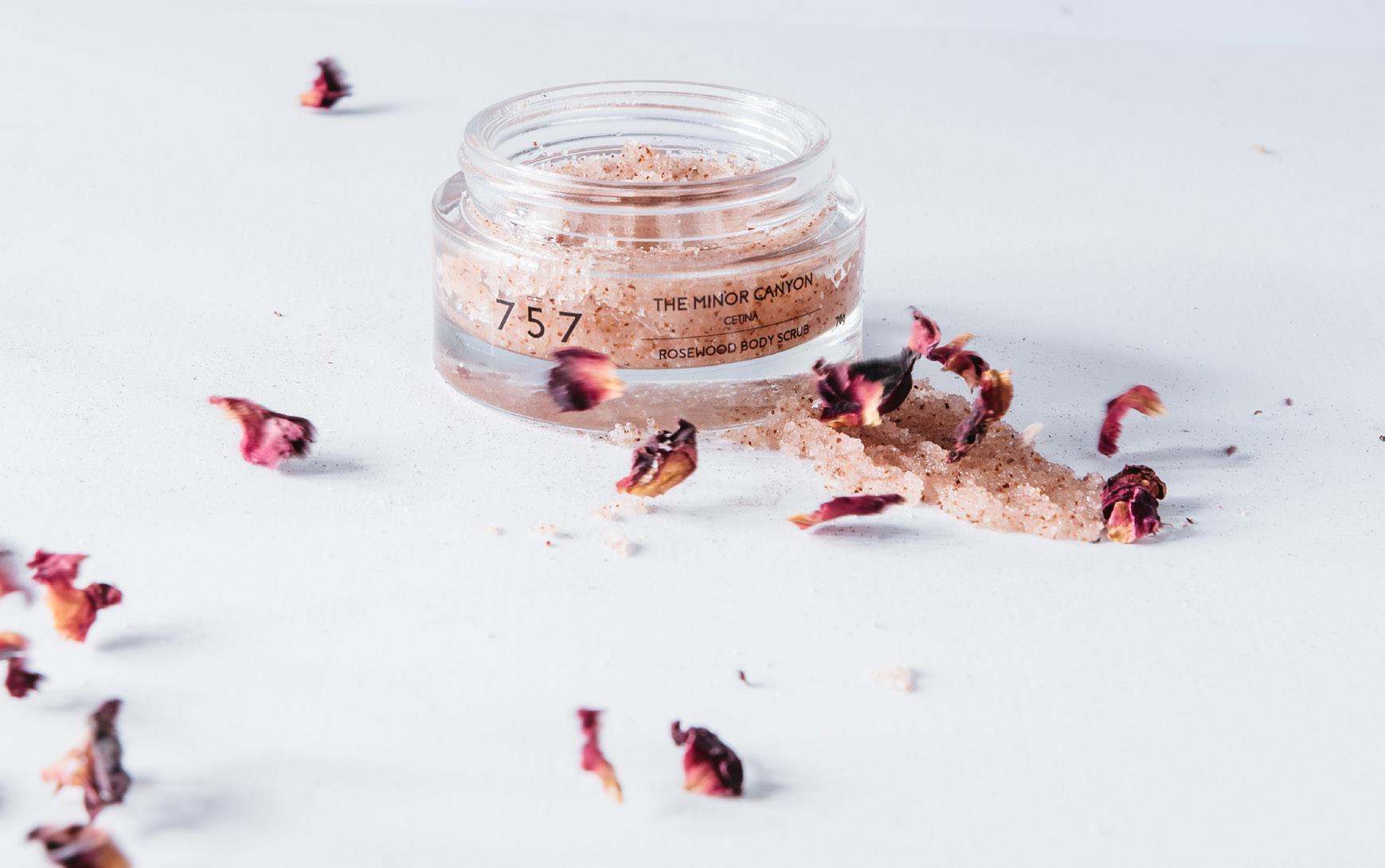
3 minute read
Stress, Anxiety and Sleep
Rising consumer interest in cognitive health products, driven by stress and modern life, has surged post-pandemic. This trend emphasizes natural ingredients, adaptogens and the gut-brain axis. While some nutrients have authorized claims, further research is needed for emerging cognitive ingredients.
Consumer interest in cognitive health products
Advertisement
Consumers are aware that the stress and pace of modern life can be damaging to our emotional and physical health.
Especially postpandemic, consumers are increasingly looking for products to help manage issues such as stress and immunity. Mental health issues do not readily respond to pharmaceutical interventions in many instances. This is one reason why consumers are increasingly turning to food, beverage, and supplement solutions – and natural ingredients look set to dominate.
Another key overlapping trend is the fact that physical health and mental wellbeing are increasingly seen as inherently connected, resulting in demand for food and beverage products that claim to target cognitive health in a holistic manner. And because consumers are looking for value for money as living costs continue to rise, products that offer double or even triple health benefits to consumers are likely to become more prevalent.
Recent FMCG Gurus data has shown that 48% of global respondents are interested in mental wellbeing. Some 45% of consumers in Brazil and 42% in Argentina, for example, recently agreed that they would

“like a diet to help maintain healthy brain function”. This demand is creating new market opportunities. Products
That Fit Current Consumer Lifestyles
One interesting trend is the fact that the line between food and supplements is blurring, driven by new delivery methods for functional ingredients such as gummies, powders, effervescents, lozenges, liquids, and chocolates.
Ingredient blends, often in the form of multivitamins, are also a key trend to follow in the brain health supplements market, especially in the mainstream where customers are looking for general solutions.
Cognitive health ingredients with consumer appeal
The global nootropics market alone is set to triple from about $10bn in 2020 to almost $30bn by 2028, according to Grand View Research – an impressive 15% growth per year. However, it is important to use ingredients that have scientific backing. The USbased Natural Marketing Institute found that 63% of respondents to a 2020 poll would take probiotics if they were clinical proven.
When it comes to addressing stress, anxiety and sleep difficulties, consumers can choose from a num ber of promising ingredients and formats. In this innovation space though, natural ingredients are like ly to dominate.

Botanical adaptogens like panax ginseng, rhodiola, schisandra, ginkgo biloba, echinacea, tulsi, lion’s mane, cordyceps, and astralagus have all been linked to cognition benefits, including stress reduction. Other ingredients touted to be cognitive-enhancing –such as ashwagandha, lavender, hops, and ltheanine – have also been identified in food and drink trend forecasts.
Natural ingredients associated with improving mood and sleep include saffron, ashwagandha, St John’s wort, magnesium, and curcumin, just to name a few. Common sleeppromoting supplements include valerian, chamomile, and melatonin but other sciencebacked options that food manufacturers may wish to explore include glycine, tart cherry juice, and holy basil.
Product development using some of these ingredients is growing.
Brands are also leveraging growing consumer awareness of the gut-brain axis – and its potentially powerful effects on mood and emotional wellness – in their product development and positioning.
A 2022 report by market analyst Lumina Intelligence also found that probiotic, prebiotic and postbiotic supplements sold online featuring gutbrain axis marketing had tripled between 2019 and 2021, across 25 countries.
Prebiotic ingredients such as galactooligosaccharides have been shown to increase the abundance of Bifidobacteria in the gut, which in turn has been shown to correlate with a reduction of stress and anxiety symptoms via the gutbrain axis.
Clinical evidence and health claims
Some nutrients in the brain health space do possess authorised claims around “neurological and psychological functions”. In the EU, for instance, this includes many members of the B vitamins family as well as vitamin C, omega-3 fatty acids, and minerals like zinc, magnesium, iron, and iodine.
Adaptogens - plant-based chemicals or botanicals believed to help stabilise physiological processes –are said to enable the body to restore balance and support it with managing physical and mental stress. Emerging science around adaptogens has suggested a positive influence on the hypothalamic pituitary-adrenal (HPA) axis. This is a system of hormones, receptors, and glands involved in bodily homeostasis, stress control, and processing energy.
Food, drink, and supplement products with gutbrainaxis claims are increasing globally, featuring a 2% average annual growth when comparing launches in 2018 and 2022, according to data from Innova Market Insights.
Critically, 64% of consumers understand the concept of bacteria within the digestive system, and two in three also recognise that gut health is key to achieving overall wellbeing.16 New clinical findings are also highlighting how probiotics, prebiotics and postbiotics can actively support cognitive health via the gutbrain axis, opening up opportunities to tar get cognitive health as part of a holistic approach to wellbeing.
More research however is needed before several emerging cognitive ingredients can go mainstream.
Read the complete report: https://www.ingredientsnetwork.com/quarterly-digests-page000632.html
References: https://www.who.int/news/item/02-03-2022-covid-19-pandemictriggers-25-increase-in-prevalence-of-anxiety-and-depressionworldwide https://www.vitafoodsinsights.com/vitafoods-europe-2023-programme/identifyingnaturalingredientssupportsleepandmentalwellbeing https://www.ingredientsnetwork.com/high-fibre-launches-capture-consumer-interest-in-news120109.html https://www.nutraingredients.com/Article/2023/06/28/SupplementslaunchpadCognitivehealthhydrationimmunityandprotein https://www.ingredientsnetwork.com/health-taste-and-more-usconsumers-want-products-news120569.html https://www.ingredientsnetwork.com/health-taste-and-more-usconsumers-want-products-news120569.html https://www.grandviewresearch.com/industry-analysis/nootropicsmarket https://www.naturalproductsinsider.com/probiotics-prebiotics/ probioticsmacrotrendsmicroorganismsdigitalmagazine https://www.vitafoodsinsights.com/vitafoods-europe-2023-programme/identifyingnaturalingredientssupportsleepandmentalwellbeing https://www.nutraingredients.com/Article/2023/06/28/SupplementslaunchpadCognitivehealthhydrationimmunityandprotein https://superfoodsaustralia.com.au/products/lions-mane-mushroom-extract?currency=AUD&variant=29578008363078&utm_ medium=cpc&utm_source=google&utm_campaign=Google%20
Shopping https://www.lumina-intelligence.com/probiotics-reports/gutbrain-axis-brain-health-probiotics-in-25-countries/ https://nutraceuticalbusinessreview.com/news/article_page/Onmind_and_ontrend_formulating_products_for_cognitive_wellbeing/203810 https://www.mdpi.com/1424-8247/3/1/188 https://www.nutritioninsight.com/analysis-feature/gut-brain-axis. html https://fmcggurus.com/blog/fmcg-gurus-the-role-of-the-gut-microbiomein2022/ https://www.ingredientsnetwork.com/cognitive-enhancing-ingredients-remain-novel-yet-news120173.html https://pubmed.ncbi.nlm.nih.gov/33551817/










